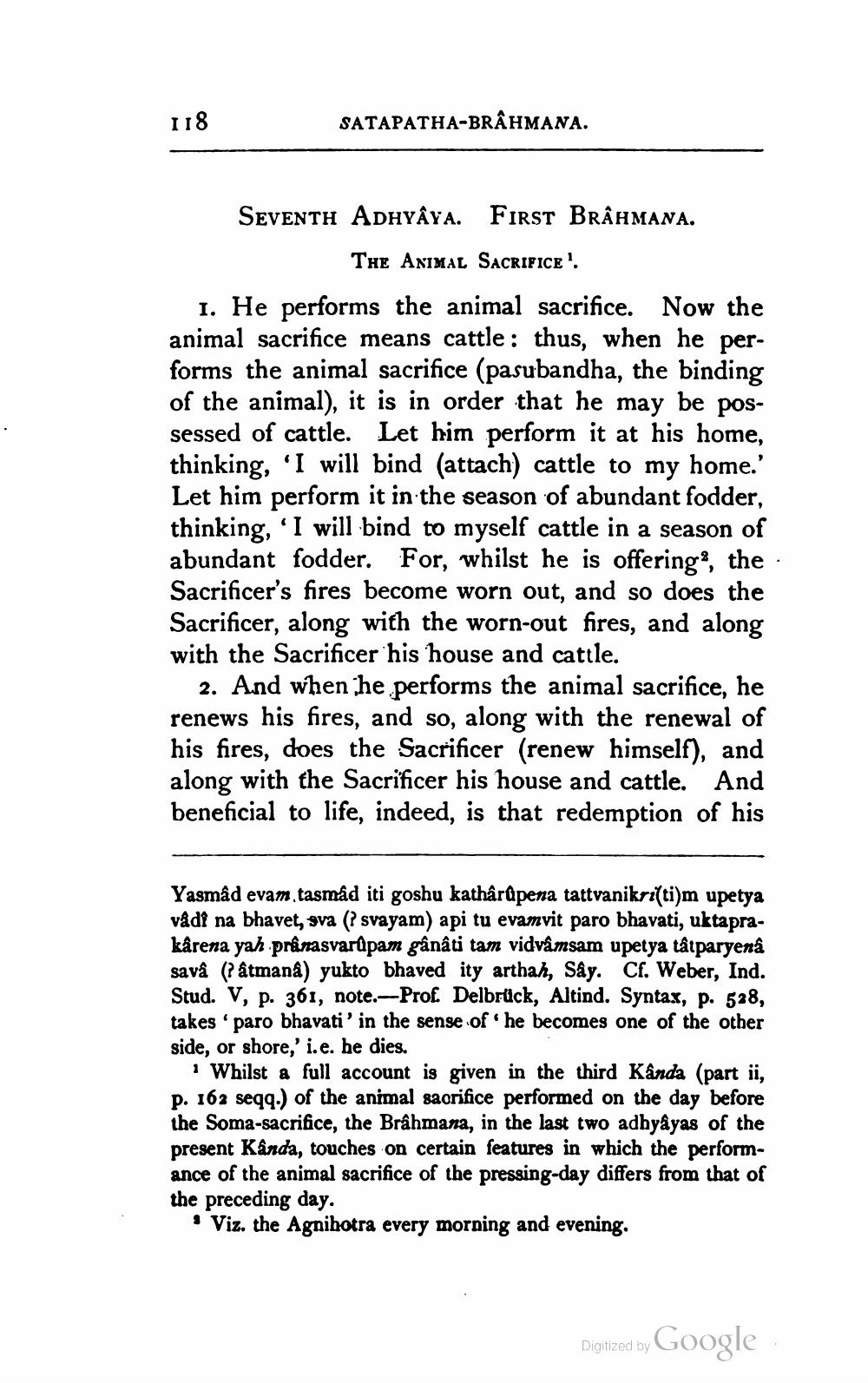________________
118
SATAPATHA-BRAHMANA.
SEVENTH ADHYÂYA. First BRAHMANA.
The Animal SACRIFICE ! I. He performs the animal sacrifice. Now the animal sacrifice means cattle: thus, when he performs the animal sacrifice (pasubandha, the binding of the animal), it is in order that he may be possessed of cattle. Let him perform it at his home, thinking, 'I will bind (attach) cattle to my home.' Let him perform it in the season of abundant fodder, thinking, ‘I will bind to myself cattle in a season of abundant fodder. For, whilst he is offering?, the · Sacrificer's fires become worn out, and so does the Sacrificer, along with the worn-out fires, and along with the Sacrificer his house and cattle.
2. And when he performs the animal sacrifice, he renews his fires, and so, along with the renewal of his fires, does the Sacrificer (renew himself), and along with the Sacrificer his house and cattle. And beneficial to life, indeed, is that redemption of his
Yasmâd evam tasmad iti goshu kathârdpena tattvanikristi)m upetya vâdi na bhavet, sva (svayam) api tu evamvit paro bhavati, uktaprakårena yah.pranasvarūpam gânâti tam vidvamsam upetya tatparyena savå (? &tmana) yukto bhaved ity arthah, Sây. Cf. Weber, Ind. Stud. V, p. 361, note.-Prof. Delbrück, Altind. Syntax, p. 528, takes 'paro bhavati' in the sense of he becomes one of the other side, or shore,' i.e. he dies.
Whilst a full account is given in the third Kanda (part ii, p. 162 seqq.) of the animal sacrifice performed on the day before the Soma-sacrifice, the Brâhmana, in the last two adhyâyas of the present Kanda, touches on certain features in which the performance of the animal sacrifice of the pressing-day differs from that of the preceding day.
• Viz. the Agnihotra every morning and evening.
Digitized by Google




